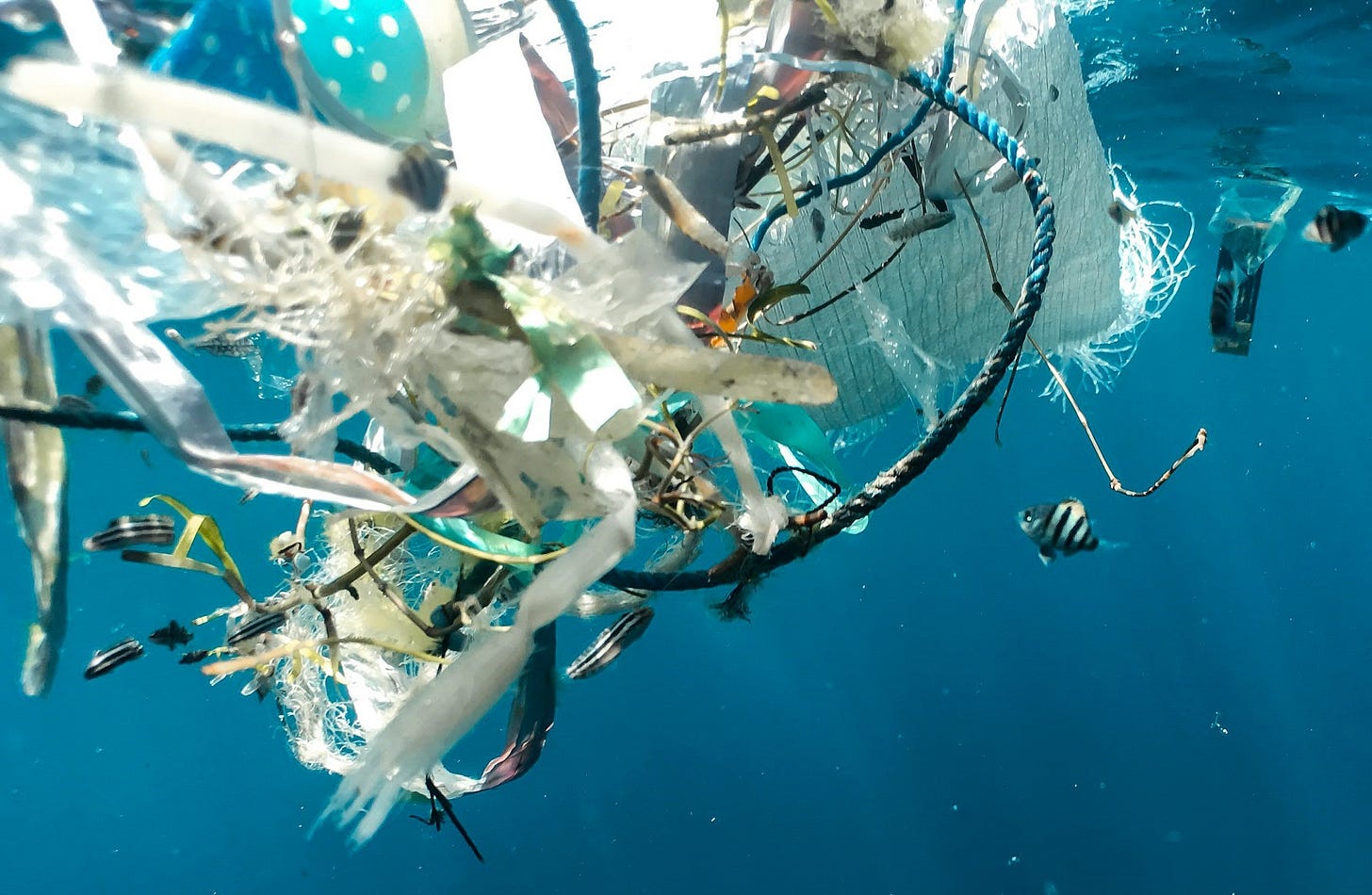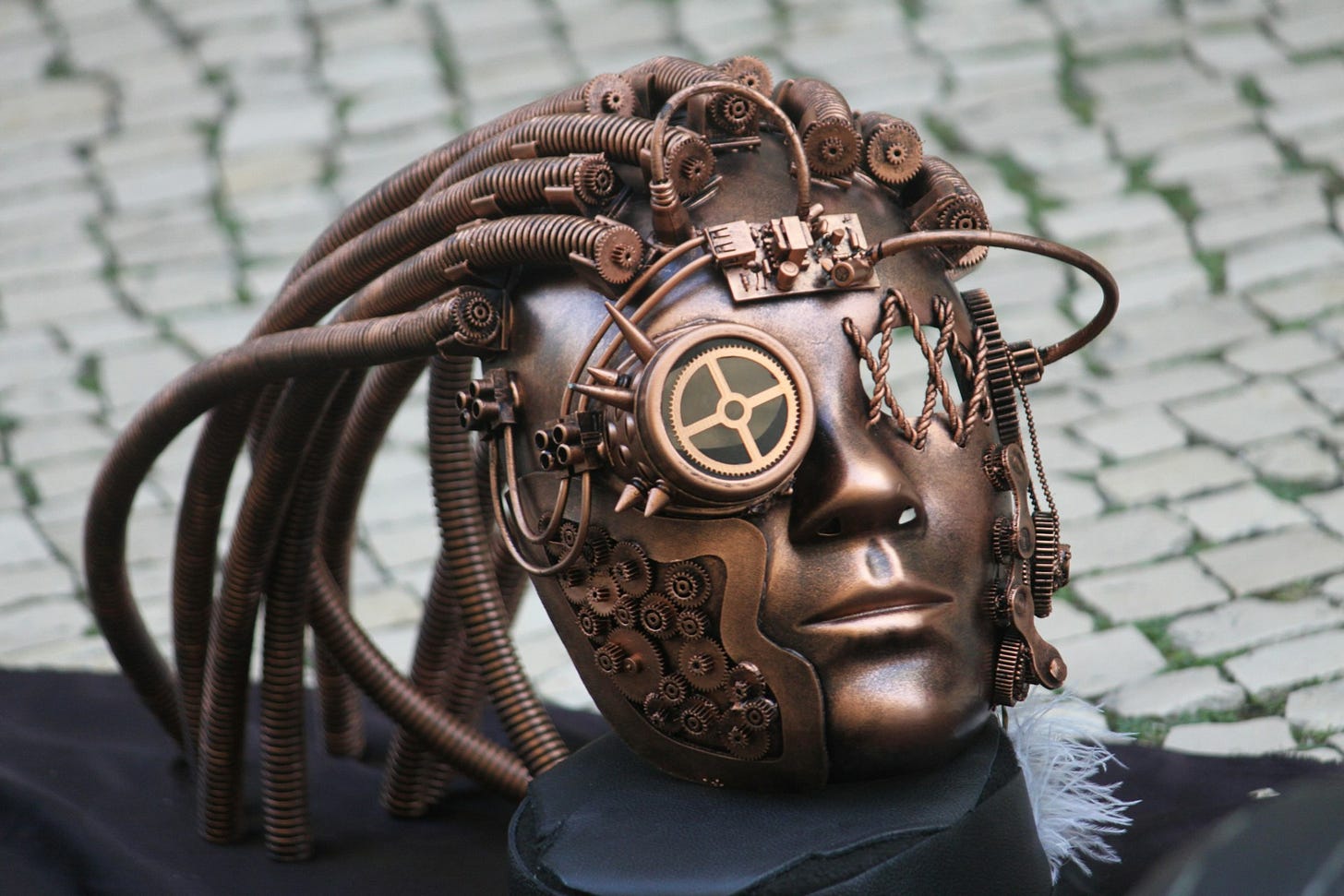Sindbad, the sailor was stuck on the mainland so he went to the fish store as a consolation. After some small talk with the saleswoman to build rapport, he put on his most disarming smile and produced an ominous object. “I’d like a kilo of dwarf catfish in this box, please.”
The saleswoman, who until then had seemed helpful, frowned and shook her head with robust determination. “I must put it in a plastic bag.”
Sindbad looked surprised, as if hearing this sentence for the first time in his life. “What stops you from putting it in this box?”, he asked.
”Regulations”, she answered.
”I’m sure there are regulations”, the customer nodded agreeably. “Yet sometimes the regulations don’t cover every situation. I’d like the fish in this container, please.”
It was clear that a dogged headshake was not a new gesture for the saleswoman.
”You can take it out and put it in your box afterwards”, she explained.
”Sure”, Sindbad nodded. “But the whole point is to avoid plastic garbage. This planet is being destroyed by all that single-use plastic.”
Source: Naja Bertolt Jensen, Unsplash
The saleswoman was not affected by such unexciting information having no connection with her job description. “I’m sorry, it’s the regulation”, she said.
”Do you have children?”, Sindbad asked, suddenly drained of energy.
”Yes”, she said.
”Would you like them to have a planet to live on?”, he inquired.
”That one bag won’t do them no harm”, she said with real insight.
”That one won’t, but the billion that are thrown away every day will”, said Sindbad, trying to expand the mental space.
She momentarily snapped out of automatic mode. “Do you know how many rubber gloves and bags I throw away every day?”, she exclaimed.
”My point exactly”, the customer agreed. “At least we can feel good about saving this one.”
The saleswoman returned to her familiar autopilot. “I must put it in a plastic bag. Environment, Health and Safety regulations.”
The expression on Sindbad’s face turned somber. “In Nazi Germany, regulations required employees to press the gas chamber button.”
Source: wallpapercat.com
The face of the saleswoman remained unmoved. She was apparently not interested in such obviously inapplicable information which had no reference to fish, plastic bags, scales, or money. But she did add a new perspective.
“This bag is new while who knows about the cleanliness of that box. That’s your responsibility.”
”Precisely”, the customer said. “You can place it in here at my risk.”
”Well I’m not going to risk my job”, she said.
”No way!”, said the customer with a worried frown. Then his face lit up. “Fortunately, there’s no one here in this shop but us. No boss, no health inspector. You can put it in here with complete peace of mind!”
”I can’t place it in anything else but a plastic bag”, she insisted.
”Yes, I know that’s the regulation, but this is my wish as a customer”, said Sindbad with a sigh. “Would you just put it in this box and get it over with? No one will see it.”
”I can’t do that, sir”, the woman said. “Will you buy the catfish in a bag or not?”
”Let the devil eat your *&$#£€ catfish!”, snarled Sindbad, and stormed out of the shop.
The fresh air immediately cooled him down. He scratched his head. I’m not sure I’ve made environmental consciousness an extremely desirable attitude for her, he thought. At least I should have asked her if she thought herself more valuable than a robot.
Source: Rock'n Roll Monkey, Unsplash
Not being one to give up on fish or principles, Sindbad made his way to another fish shop. Not having been born yesterday he knew full well that the phrase “no bag please” would freeze the program running in the salesperson. He or she would start to tick and shake and might even blow a fuse. Sindbad had no intention to make the person fall apart, what with parts rolling all around the place. The suggestion that might do the trick would be “I’d like four small trout in this container please”, with the plastic box held just at grab level. This was the strategy he applied.
The saleswoman nodded kindly, and took the plastic container. Then, quick as lightning, she slipped her hand into a new plastic bag, grabbed a fish and put it in the box.
Sindbad watched the destruction of the bag with a dejected feeling, handed over an appropriate amount of colored paper and metal discs, politely thanked the woman for the goods and left. I’ve truly made a significant contribution to the cause of environmental protection today, he reflected.
Since the battlefield produced little success, he switched to the theoretical realm. Perhaps with the right strategy, he could lead the troops to victory next time. To arms, brave warriors, against perfidious plastic!
Source: Stefan Schweihofer, Pixabay
Meanwhile, he knew full well that The Bag (pronounced in a reverential voice) was only a weapon. The real enemy was the horde of robots disguised as humans. Bloody-minded bureaucrats are definitely not a new phenomenon, he reminded himself. Our kind of dinosaur even faintly remembers the saleswomen and night porters of so-called socialism sporting a special form of haughty cantankerousness. What has changed is that even seemingly normal people are behaving more and more like machines. You turn to a stranger on the street and they’re stuck. No words leave their mouths. They cannot produce a response because a non-standard phrase has entered their processing unit. One used to be able to guess a person’s character by their looks. A young person with dreadlocks was likely fairly easygoing. Today, dreads are merely one of a myriad fashion trends. It’s quite possible that the person in the call centre that keeps repeating one of three evasive phrases to you, is wearing dreadlocks. They could even be someone else’s that they had sewn on in a beauty salon.
Source: Dalila Moreira, Unsplash
In the past, it was mostly the various institutions of state that mechanized people, he mused. School, the Bureau, the army. Today, multinationals do a much more professional job. Here is your menu: A, B, C, what to respond to what. While superficial politeness is a requirement for those dealing with clients, independent thinking is a contraindication.
But why think when we have smart TVs, smart watches, smartphones and smart homes? We have been flanked, our salient has been surrounded. Machines pounced on us from all sides and they’re bouncing up and down on our bellies. PIN-codes are pinning us down, programs are pinching us and pixels are punching us. Our best friend is Chat GPT who never talks back. We’ve become usernames, passwords, avatars. We’re downloading movies, paying by phone, taking tickets from machines. Garage door at the push of a button, cash from the ATM, order on the app, log in to your profile. The human nervous system is so flexible. If you treat it like a machine, if you pin up images of machines as role models, what do you expect?
Source: Kohji Asakawa, Pixabay
We, the so-called Generation X, he continued, are supposedly still mostly human-oriented. Maybe a friend of ours has a contact in the bureau. If not, we enter the office and scan the officials, looking for I.Q. in their eyes. Which one of them has human emotions and is willing to find the gaps between the paragraphs for us? Who is still able to speak, not just repeat inputted sentences?
Perhaps I should get a document from Environment, Health and Safety, Sindbad thought, with just the right signets: “This food container is a regular food container approved by the Bureau of Environment, Health and Safety. Fresh produce may be dispensed in this container between January 1st and December 31st in Hungary.”
But what if, Sindbad thought, they really are robots? What if people are gradually being replaced at night while we sleep? Maybe all your neighbors are already androids, you just haven’t consciously noticed it yet. Could it be that your spouse, your children have been replaced by robots? How about your dog?
I think I’ll pick up a TV remote control at the next lomi1, he speculated. I’ll carry it with me and flaunt it when communicating. I’ll point it to the person’s head and demonstratively change channels. If they are a robot, they might respond. If they’re human, they might get ashamed.
And what if it won’t work?, he thought. Where will I get fish?
Come on, he said to himself. Sooner or later I’ll get swapped for a machine, too. I can hardly wait for that tasty meal.
Source: https://thedorsetcopperfish.co.uk/project/steampunk-fish/
ADVERTISEMENT — CHRISTMAS SPECIAL
Until Christmas mindennapinlp (Everyday NLP) offers all my online courses with a 40% discount (write coupon code negyven). The courses are in Hungarian. Choose from a wide array: Ericksoni hipnózis (Ericksonian Hypnosis), NLP-varázsigék (NLP Slight-of-Mouth Patterns), Száz nap a karcsúságért, (A Hundred Days for a Slim Body), Boldog idők (Happy Times — Alternative Time Management), Érvényesülés (Success), Gazdagság (Being Rich), A tanulás művészete (The Art of Learning).
Once a year in a given district in Budapest people can put any kind of junk, furniture, etc. on the street for the municipality to take away. In this curious and messy social event of gypsies, artists etc. you can find any object that was ever produced on Earth. Consumer society can be completely bypassed.






